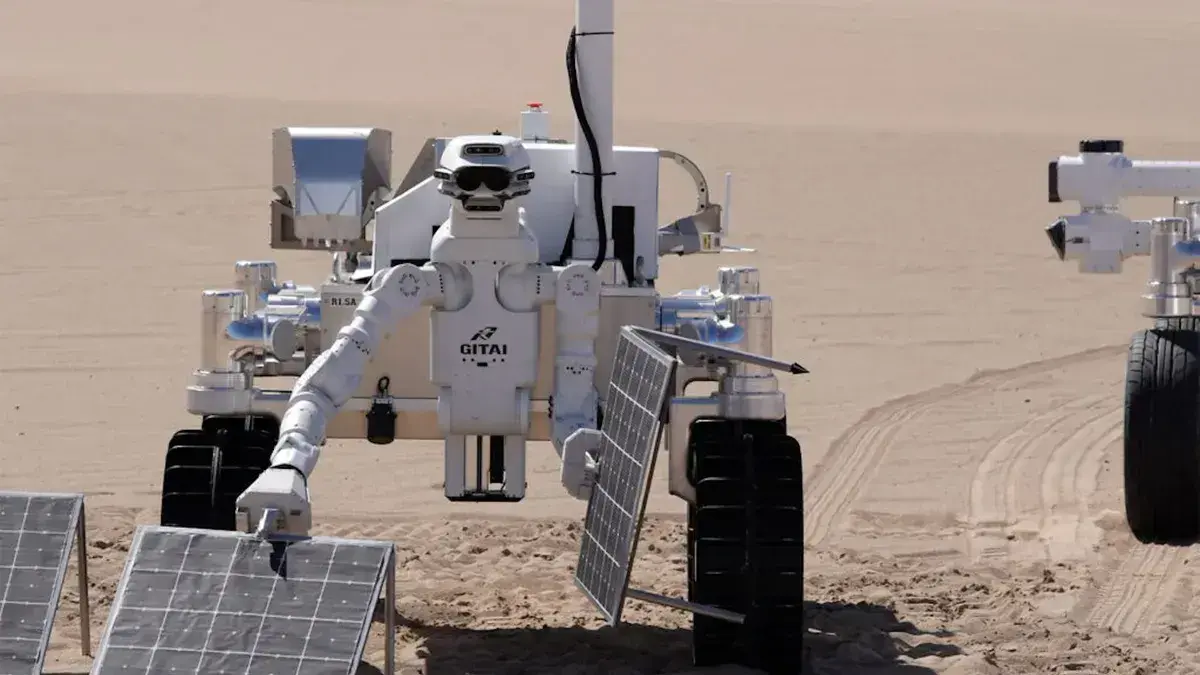Japanese startup Gitai has recently secured $30 million in funding and is now expanding its operations in the United States. The company’s objective is to develop a workforce of robots that can significantly reduce the costs and risks associated with space operations. While industry giants like Elon Musk’s SpaceX and Jeff Bezos’ BlueOrigin focus on space transportation, Gitai’s CEO, Sho Nakanose, is concentrating on labor costs. Nakanose believes that human assembly and inspection of machinery in space are both impractical and hazardous, and current equipment is prohibitively expensive.
Addressing Operational Costs in Space
In an interview with Bloomberg TV, Nakanose highlighted the rapidly changing dynamics of the space industry. While transportation costs have been the primary challenge, SpaceX and BlueOrigin are making significant strides in solving this problem. Consequently, the focus has shifted to operational costs, which have become the new bottleneck. Gitai aims to overcome this hurdle by developing space robots capable of performing routine tasks on celestial bodies like the moon or Mars, offering substantial cost reductions compared to existing options. Nakanose draws a parallel to SpaceX’s achievements in reducing the expenses associated with rocket launches.
Gitai’s robot arms and rovers are designed to provide safe and cost-effective labor in space, potentially reducing operational costs by a factor of 100. To support the development of these remotely-controlled robots, Gitai recently concluded a ¥4 billion ($30 million) funding round. The company plans to expand its presence in the US, hiring engineers and preparing its robots for deployment in space.
Related: Manufacturing Cobots: What Are The Main Parts Of A Robot And Their Benefits?
Robots Workforce in Space
Gitai’s robotic arms and rovers possess the capability to perform a wide range of construction tasks remotely, including solar panel installation, welding, equipment inspection, maintenance, and assembly. However, for successful operations in space, these robots must also withstand and mitigate radiation exposure while maximizing efficiency.
Gitai has already made significant progress in this field. In 2021, the company conducted its first tech demonstration inside the International Space Station (ISS). This year, Gitai plans to conduct its next tech demo outside the ISS, further validating the capabilities of its space robots workforce.
Expansion to the US
Driven by the limited opportunities in the Japanese space market, Gitai has decided to expand its operations in the United States. With NASA increasingly awarding contracts to private companies, space startups worldwide are flocking to the US to capitalize on these opportunities. Gitai’s CEO, now based in Los Angeles, acknowledged the potential for growth in the US market and expressed the company’s commitment to expanding its business there.
Also, read: Everything You Need To Know About Robot Waiter Restaurant
What is Gitai’s primary focus in the space industry?
Gitai focuses on developing space robots to address labor costs and reduce operational risks in space missions.
What tasks can Gitai’s robots perform in space?
Gitai’s robotic arms and rovers can perform a wide range of tasks, including construction work, solar panel installation, welding, equipment inspection, maintenance, and assembly.
What is Gitai’s strategy for cost reduction in space operations?
By utilizing space robots, Gitai aims to reduce operational costs by a factor of 100 compared to existing methods, making space exploration more affordable and accessible.
Why is Gitai expanding in the United States?
Gitai recognizes the limited opportunities in the Japanese space market and sees potential for growth in the US, driven by NASA contracts and the emerging lunar economy.
Source: interestingengineering




